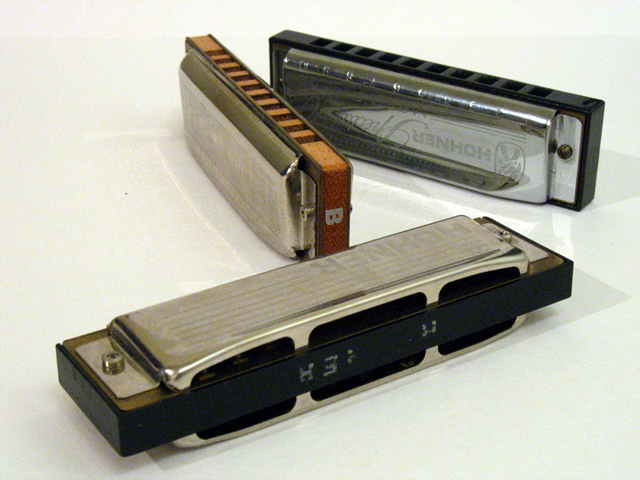 The diatonic harmonica poses some unique challenges to someone starting to play it. Unlike most other Western instruments, it is not designed to play all the notes. Most diatonic harmonicas are set up using what is called the Richter tuning system. Named for a 19th century German harmonica maker, this system was designed to make the instrument serve several functions.
The diatonic harmonica poses some unique challenges to someone starting to play it. Unlike most other Western instruments, it is not designed to play all the notes. Most diatonic harmonicas are set up using what is called the Richter tuning system. Named for a 19th century German harmonica maker, this system was designed to make the instrument serve several functions.
If you sweep over the holes blowing each one from 1 to 10 (you can get single notes by using a pucker embouchure or tongue blocking, a more complicated technique), you will get a 3 octave major arpeggio. On a harmonica in the key of C, this starts at middle C, has the notes C, E, and G, and actually has the same range as a flute.
 The diatonic harmonica poses some unique challenges to someone starting to play it. Unlike most other Western instruments, it is not designed to play all the notes. Most diatonic harmonicas are set up using what is called the Richter tuning system. Named for a 19th century German harmonica maker, this system was designed to make the instrument serve several functions.
The diatonic harmonica poses some unique challenges to someone starting to play it. Unlike most other Western instruments, it is not designed to play all the notes. Most diatonic harmonicas are set up using what is called the Richter tuning system. Named for a 19th century German harmonica maker, this system was designed to make the instrument serve several functions.
If you sweep over the holes blowing each one from 1 to 10 (you can get single notes by using a pucker embouchure or tongue blocking, a more complicated technique), you will get a 3 octave major arpeggio. On a harmonica in the key of C, this starts at middle C, has the notes C, E, and G, and actually has the same range as a flute.